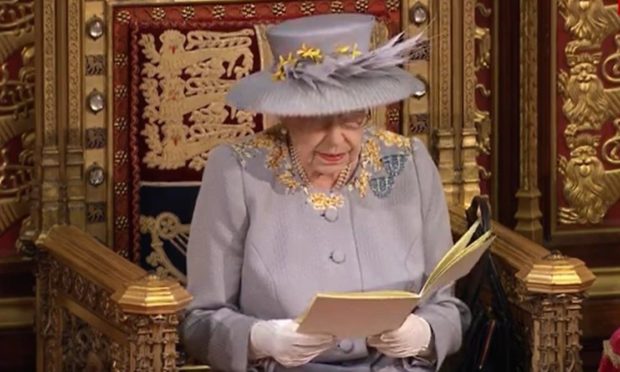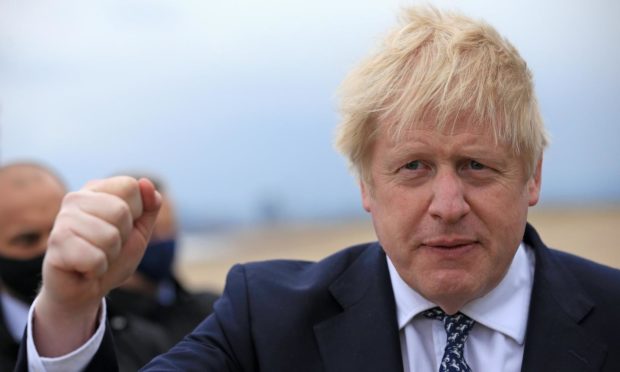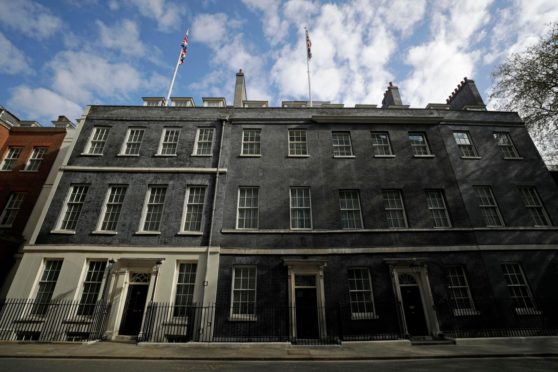Boris Johnson has put the Union front and centre of his legislative programme for the next year.
Just days after Holyrood returned a pro-independence majority, the prime minister used the Queen’s Speech to announce a series of measures to “strengthen the economic ties across the Union”.
Policies on improving rail and road connectivity across the UK, job creation, skills investment, extra funding for local authorities and infrastructure spending all featured in Mr Johnson’s 155-page “thrive and prosper” plan.
In a foreword to the speech, the prime minister said: “As the United Kingdom gets back on its feet, we will turbo-charge our economic recovery in every part of our country, increasing and spreading opportunity.
“We will publish a Levelling up White Paper setting out bold new interventions to improve livelihoods and opportunities throughout the UK.
“Alongside our continued support for businesses, we will invest in infrastructure, supporting growth and creating high-quality jobs.”
Mr Johnson said his plan to “build back stronger” would “bring the Union together”.
High-quality jobs
He added: “Our Plan for Growth will ensure that we build back better after the pandemic.
“It will take a transformational approach, tackling long-term problems to deliver growth that creates high-quality jobs across the UK and makes the most of the strengths of the Union.”
Key to Mr Johnson’s economic plan is his “levelling-up” agenda, which will see the government deploy targeted investment across the UK – whether through the towns fund or shared prosperity fund, local councils will have a chance to bid for cash to improve their area.
Number 10 have said the plan shows the UK Government’s commitment to “protecting and promoting the strengths of the United Kingdom” and “builds on hundreds of years of partnership between the regions of our country as the most successful political and economic union in history, the foundation upon which all our businesses and citizens are able to thrive and prosper.
Borders legislation
Of the 33 Bills set out in the speech, 30 will apply fully or in part to Scotland.
Those which apply fully include the Online Safety Bill, which will require social networks to tackle illegal content on their services and clearly set out in their terms what content is and is not acceptable.
Legislation on borders is also expected to overhaul the asylum system.
The Electoral Integrity Bill, which includes the voter ID proposal, applies in part to Scotland – though the SNP says it does not support the voter ID requirement for Holyrood elections.
Scottish Secretary Alister Jack said: “This is a Queen’s Speech which delivers for people in Scotland, and right across the United Kingdom, as we focus entirely on recovering our economy and our public services from the devastating effects of the Covid pandemic.”

The speech also set out a number of pieces of post-Brexit legislation on immigration, trade and fisheries.
Number 10 claimed the new laws would ensure “Scottish businesses flourish outside the EU” and explained the government would “continue to open up new global opportunities as we strike new trade deals across the world, creating new markets for Scotland’s exporters, including our world-leading food and drink sector”.
Power grab
The SNP dismissed the plan, saying the Tories were “imposing the long-term damage of austerity cuts, Brexit and a power grab against Scotland’s will”.
The party’s Westminster leader, Ian Blackford, said: “This should have been an ambitious plan for an investment-led recovery – with a major fiscal stimulus to create jobs, raising incomes with a real living wage, and boosting NHS and social care investment to the levels we see in Scotland.
“Instead, the Tories are imposing cuts, introducing Trump-like voter suppression and attacking the rights of refugees.
“Scotland is on a completely different political path to Westminster.”


